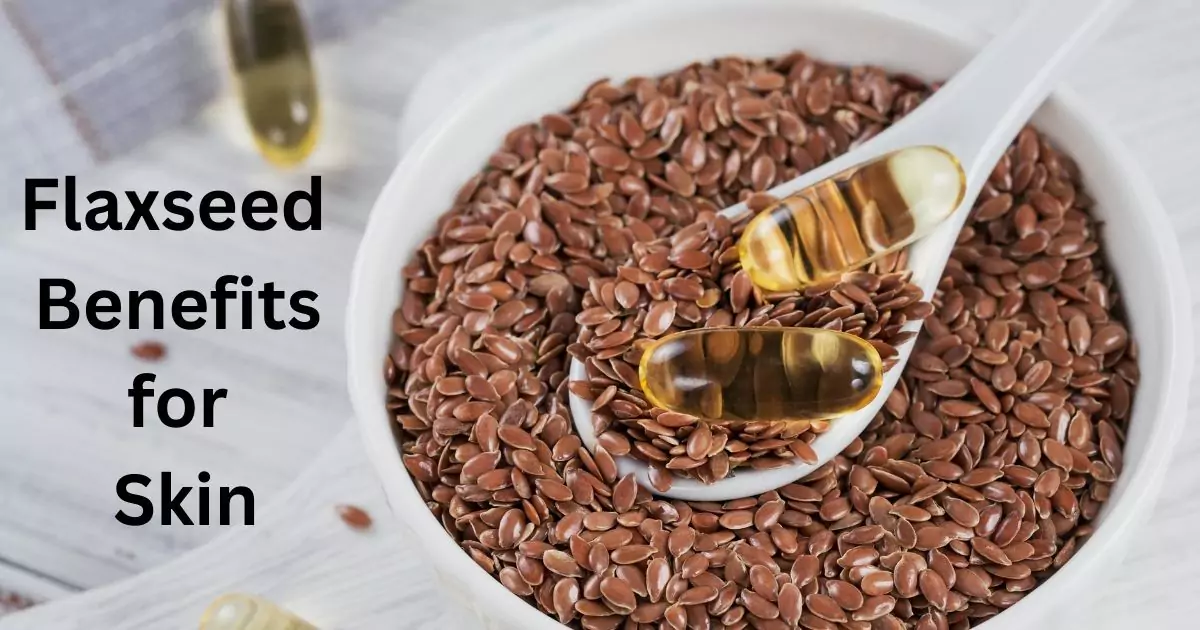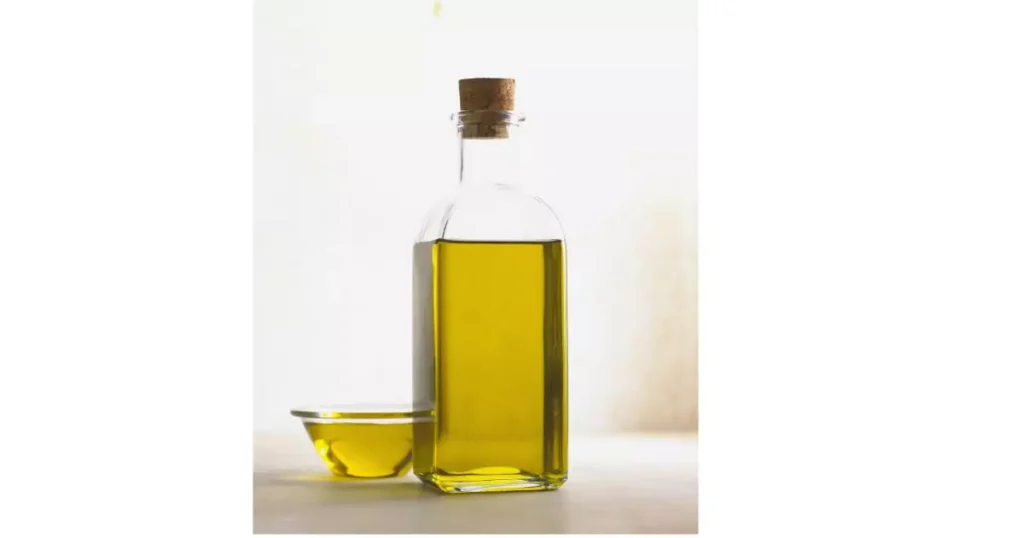Introduction
Flax seeds are recently used as a natural way to enhance your skin’s health as a beginner in skincare. Flaxseed benefits for skin are based on its very high omega-3 fatty acids, which nourish and protect your skin from within as well as externally.
Researchers highlight how flaxseed improves skin hydration, reduces inflammation, and fights signs of aging. Whether you consume it, apply it as gel, or use its oil topically, flaxseed transforms your skincare routine affordably and effectively.
Flaxseed comes in whole seeds, ground form, or as oil extracted from the seeds. For skin, people often use it internally through diet or externally via masks, use it as a gel, and serums.
This article dives into the flaxseed benefits for skin in general, then spotlights flaxseed gel and oil. We cover how these forms hydrate, soothe, improve elasticity, and rejuvenate your skin, with tips tailored for beginners.
By the end, you will know how to integrate flaxseed safely into your daily regimen for a glowing complexion.
Read more: Benefits of Drinking Buttermilk for Skin
Flaxseed nutrition
Flaxseed, also known as *Linum usitatissimum*, is loaded with bioactive compounds such as Omega-3 fatty Acids, Lignans and Antioxidants, Flaxseed Mucilage and polysaccharides, flaxseed oil, and Essential nutrients including protein, vitamin K, and E.
Flaxseed bursts with alpha-linolenic acid (ALA), an omega-3 fatty acid that strengthens your skin’s barrier, locking in moisture and shielding against environmental stressors like pollution and UV rays.
Lignans, plant compounds in flaxseed, act as antioxidants, neutralizing free radicals that cause premature aging.
Additionally, flaxseed provides fiber, protein, and vitamins like E and B, all supporting collagen production and skin repair.
Flaxseed Benefits for Skin
Flaxseed benefits for skin in multiple ways, addressing common concerns like dryness, acne, and aging. Unlike synthetic products, flaxseed offers these benefits naturally, making it ideal for individuals with sensitive skin types.
You experience these advantages through consistent use, either by eating flaxseed or applying it topically.
1. Hydration and Moisturization
The composition of rich bioactive compounds of flaxseed offers skincare properties due to reducing skin cell damage.
The omega-3s in flaxseed oil and seeds enhance your skin’s ability to retain water, resulting in a plump, supple texture.
It maintains skin moisture balance and increases skin’s elasticity and hydration.
You start noticing smoother skin after incorporating ground flaxseed into your regular diet.
Sprinkle a tablespoon of flaxseeds on salads daily. For external use, a flaxseed mask draws in moisture, leaving your face refreshed.
2. Anti-Inflammatory Effects
Inflammation causes redness, acne, and conditions like eczema. Flaxseed helps calm inflammation. Flaxseed Mucilage and Polysaccharides exhibit skin-soothing properties and, hence, are ideal for sensitive and dry skin products.
You reduce breakouts and soothe irritated skin by using flaxseed regularly.
Research indicates that flaxseed oil lowers skin sensitivity to irritants, making it gentler for beginners with sensitive skin. It helps reduce redness and inflammation, particularly in cases of acne and eczema.
Apply flaxseed-infused products to inflamed areas for quick relief. The antioxidants in lignans fight oxidative stress, preventing further inflammation from sun exposure or pollution.
3. Anti-Aging Properties
Aging skin loses elasticity, forming wrinkles and fine lines. Flaxseed counters this with its collagen-boosting nutrients and by combating free radicals that prevent premature ageing.
Lignans and Antioxidants present in flaxseeds have anti-aging properties. They improve skin tone and texture, promote collagen synthesis, firm your skin, and reduce sagging. You achieve a youthful glow as flaxseed’s fatty acids plump skin cells.
Beginners start with simple routines: Consume flaxseed to support internal repair, and use topical forms for surface-level rejuvenation. Over time, you see diminished wrinkles and improved texture.
4. Acne and Blemish Control
Acne stems from excess oil and bacteria. Flaxseed helps regulate sebum production, keeping androgen hormones balanced.
Flaxseeds help lower skin inflammation associated with acne. It includes vitamin E, which helps in facilitating skin cell regeneration.
Flaxseeds are packed with fiber that detoxifies your body, clearing skin from the inside out.
Mix ground flaxseed with water for a paste that draws out impurities. This gentle approach suits beginners, avoiding strong acne treatments.
5. Protection Against Environmental Damage
Free radicals from UV rays and pollution damage skin cells. Flaxseed’s powerful antioxidants, like vitamin E and lignans, neutralize the free radicals that cause cellular damage on exposure to UV radiation and pollutants, preserving your skin’s integrity.
You build resilience by including flaxseed in your routine, delaying signs of photoaging.
The nutrients in flaxseeds aid skin cell regeneration, repair, and improve wound healing.
How to add flaxseed to your diet
Flaxseed is often mixed with foods and used in baked goods, such as muffins, breads, and snack bars.
Flaxseeds can be added to salads and stir-fry veggies.
Grounded flaxseeds can be sprinkled on salads, smoothies, or yogurt.
Flaxseed oil
Flaxseed oil is derived from mature flaxseeds through a cold-press extraction process valued for its nutritional and therapeutic properties. Flaxseed oil is easily available in both liquid and capsule form.
Flaxseed oil contains alpha-linolenic acid (ALA), a form of omega-3 fatty acids, which play an important role in skin physiology, and research shows that flaxseed oil supplementation can significantly improve skin condition.
Flaxseed Oil Benefits for Skin
Flaxseed oil can be taken orally or applied topically at room temperature. Heating of oil is not recommended. Here are the amazing top flaxseed oil benefits for skin mentioned below.
1. Retains Moisture
In a study done on a group of people, it was observed that supplementation with flaxseed oil led to significant decreases in sensitivity, skin roughness, scaling, and transepidermal water loss, resulting in better moisture retention and a smoother skin texture.
2. Heals Wound
In one study, patients with diabetic foot syndrome took 1000 mg of flaxseed-derived omega-3s twice daily for 12 weeks, which led to notable reductions in both the size and depth of ulcers in individuals with diabetic foot syndrome. Omega-3 fatty acids from flaxseed oil help wounds heal faster.
3. Acts as an Anti-inflammatory
For those with sensitive or irritated skin, flaxseed oil is a gentle yet effective remedy. Its anti-inflammatory properties can soothe conditions like dermatitis, dry skin, and eczema. A clinical study found that flaxseed oil, when applied topically, reduced skin redness and irritation significantly.
4. Soothens Your Skin
Whether you’re dealing with chronic skin sensitivity or the occasional flare-up, flaxseed oil offers a soothing touch to your skin due to its anti-inflammatory and moisturizing properties.
5. Aids in Various Dermatological Conditions
Flaxseed oil contains omega-3 fatty acids, which how important antioxidant and anti-inflammatory characteristics that can be used in various dermatological conditions such as acne, psoriasis, atopic dermatitis, and skin ulcer, which make them successful for skincare use.
6. Promotes Skin Cell Repair
Flaxseed Oil includes Essential Nutrients such as vitamin E that help in facilitating skin cell regeneration and repair. Flaxseed oil possesses hydrating properties that strengthen the skin’s moisture barrier, which can benefit dry skin. It helps retain moisture, keeping the skin plump and hydrated.
7. Anti-aging
Flaxseed oil helps reduce wrinkles, fine lines and and firms skin, acting as an anti-ageing agent. Supplements of flaxseed oil offer improved skin elasticity and firmness.
8. Enhanced Skin Barrier Function
Flaxseed oil has already been proven by clinical studies to have, remarkable enhancement of trans-epidermal water loss (TEWL), showing improved skin barrier function and hydration, preventing moisture loss without clogging pores.
How to use flaxseed oil
A teaspoon of flaxseed oil can be added to salad, dips, or sauces. Flaxseed oil is not recommended for cooking purposes.
Flaxseed oil can be consumed as a supplement in capsule form
Use flaxseed oil in serums for long-term youthfulness.
Take a few drops of flaxseed oil and apply directly to the affected area, or mix with jojoba oil for sensitive skin. Start with patch tests.
Or you can add a few drops of flaxseed oil to your moisturiser and apply it to your skin.
Flaxseed Gel Benefits For Skin
Flaxseed gel, made by boiling seeds in water, forms a mucilaginous substance rich in nutrients. You can create this at home easily, and it delivers the following flaxseed gel benefits for skin.
Study-based Flaxseed gel benefits for skin are given below:
1. Moisturizing and Soothing Dry Skin
Flaxseed gel hydrates deeply, thanks to its gel-like consistency that seals in moisture. Apply it as a mask to soothe dry patches, leaving skin soft and dewy. Beginners love its non-greasy feel.
Scientific studies show that flaxseed mucilage and polysaccharides act like hyaluronic acid, retaining moisture in the layers of the skin and soothing dry skin.
Gel and cream made from flaxseed mucilage, in fact, strongly increase water retention. Hence, it is adapted for sensitive and dry skin.
Face masks and gels containing flaxseed have been declared to aid skin hydration, and when used with other bioactive ingredients, hibiscus, castor oil, and vitamin E, they give texture.
2. Reducing Wrinkles and Fine Lines
The flaxseed gel tightens skin, giving a lifting effect. It improves elasticity with the help of vitamin E and omega-3 fatty acids, which reduce fine lines over time. Use it at night for cumulative anti-aging benefits.
3. Calming Inflammation and Acne
Its anti-inflammatory properties ease redness and pimples. You can mix flaxseed gel with aloe vera for a cooling mask that beginners can apply twice weekly.
How to Make and Use Flaxseed Gel
Boil 1/4 cup flaxseeds in 2 cups water until thick, strain, and cool. Store in the refrigerator for a week. Apply as a 20-minute mask, then rinse with water.
Potential Side Effects and Precautions
Flaxseed is generally well-tolerated and safe for most people, whether consumed or applied topically. However, moderation is key—excessive intake may lead to bloating or digestive discomfort.
When used on the skin, allergic reactions are rare but possible, so it’s best to do a patch test before applying flaxseed oil or gel more broadly.
Avoid consuming flaxseeds if you are on blood thinners, antidiabetic drugs, antibiotics, or antihypertensive drugs, as flaxseed may interact with these drugs.
I you are undergoing any health conditions and are under medication, I would recommend you consult your health expert before adding it to your diet.
More studies are required to explore its therapeutic potential, including pregnant and lactating women.
Conclusion
Flaxseed benefits your skin profoundly, offering hydration, anti-inflammation, and anti-aging through its gel and oil forms. The studies provide evidence that the daily intake of flaxseed oil modulates skin condition.
Incorporating flaxseed in your routine, you harness these natural perks to achieve radiant skin without complexity. Start small, stay consistent, and watch your complexion transform. Embrace flaxseed today for healthier, glowing skin tomorrow.
FAQ’s (Frequently Asked Questions)
Can we apply flaxseed to the face?
Yes, Flaxseed can be applied to the face in gel form, or flaxseed oil can be applied on the affected area of the skin.
What are the benefits of flaxseed for skin?
- Hydrates and moisturises the skin
- Lowers inflammation
- Acts as an anti-aging agent
- Acne and Blemish Control
- Protects against UV damage and other pollutants
- Lowers skin irritation and soothes the skin
Flaxseed gel benefits for eczema?
Flaxseed gel gives a calming effect, retains moisture, and reduces skin irritation and dryness, which can be beneficial for eczema.
How much flaxseed per day?
1 to 2 tablespoons of flaxseeds can be consumed per day.
Is flaxseed anti-aging?
Yes, Flaxseeds contain antioxidants that help reduce wrinkles and fine lines. Flaxseed bioactive components support skin elasticity and provide more hydration, giving you youthful and glowing skin.
References
Flaxseed – Uses, Side Effects, and More
https://www.webmd.com/vitamins/ai/ingredientmono-991/flaxseed#overview
Flaxseed—a potential functional food source
https://pmc.ncbi.nlm.nih.gov/articles/PMC4375225/#Abs1
Development of Phytocosmeceutical Microemulgel Containing Flaxseed Extract and Its In Vitro and In Vivo Characterization
https://pmc.ncbi.nlm.nih.gov/articles/PMC9415642/#abstract1
What are the benefits of flaxseed oil?
https://www.medicalnewstoday.com/articles/323745
Supplementation of flaxseed oil diminishes skin sensitivity and improves skin barrier function and condition
https://pubmed.ncbi.nlm.nih.gov/21088453/
The Role of Flaxseed in Improving Human Health
https://pmc.ncbi.nlm.nih.gov/articles/PMC9914786/#abstract1
The Science of Flaxseed in Skincare: A Review on Its …
Seeds, flaxseed
https://fdc.nal.usda.gov/food-details/169414/nutrients





